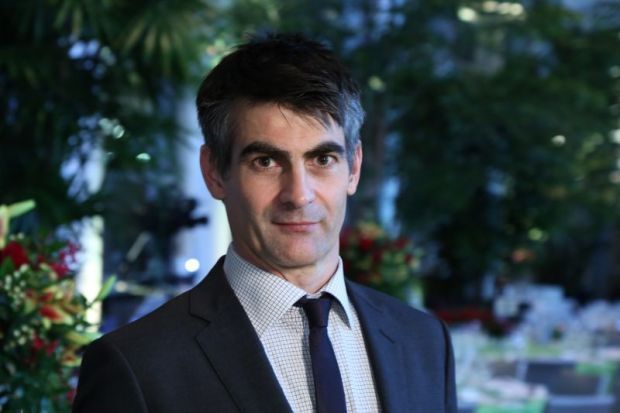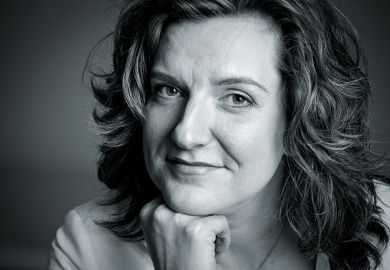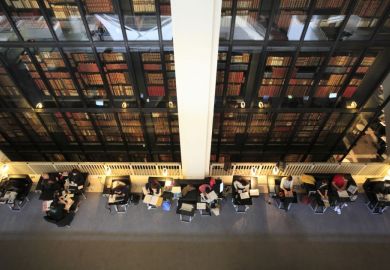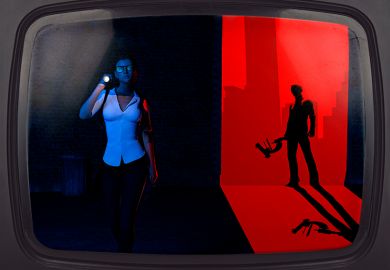Daniel Beer, reader in history at Royal Holloway, University of London, won this year’s Cundill History Prize for The House of the Dead: Siberian Exile under the Tsars. The judges of the international prize, administered by McGill University and recognising the “leading historians of our time”, praised his “extraordinary research, using underappreciated and unexamined sources, to show what exile meant to generations of Russians and other nationalities within the Russian Empire”.
Where and when were you born?
Newbury, Devon, 1973.
How has this shaped who you are?
I was a bookworm as a child growing up in a small village in North Devon, and I went on to study languages and literature as an undergraduate. Literature has always shaped the way I’ve approached history.
The Cundill History Prize recognises the best history writing in English and comes with a $75,000 (£56,000) cheque. What satisfied you most about winning it?
It was a tremendous honour to be awarded the Cundill Prize by such a distinguished jury and to suddenly find myself in the company of the excellent historians who have won the prize in previous years. When The House of the Dead was first published, I was a little anxious that it would not be sufficiently scholarly for an academic audience but would still be too dense for a general audience. Winning the Cundill Prize was hugely reassuring that I’d somehow managed to hit the sweet spot of serious scholarship for a wider audience.
Why does the tsarist penal system merit particular attention?
The exile system merits such attention because it attempted the penal colonisation of an entire continent and involved the deportation of more than a million tsarist subjects beyond the Ural Mountains. Siberia also emerges as a central staging ground in the development of both European republicanism and the Russian revolutionary movement.
Did your research for The House of the Dead take you to any places you had not expected to go?
I spent about a year and a half working in archives in European Russia and Siberia. The most remarkable place I visited was the former Aleksandrovsk Central Prison, which is located in a small and dilapidated village about 70km from Irkutsk in Eastern Siberia. The prison, which used to be the Alcatraz of Eastern Siberia, is now an open psychiatric hospital with about 500 patients. The structure is decaying; one of the wings collapsed in a fire, and the rest of the building is sinking into the swampy ground. When I visited, the prison had an almost hallucinatory quality as psychiatric patients with shaved heads wandered through the dirt roads of the village alongside semi-wild horses and cattle.
What kind of legacy did the tsarist penal system leave in Russian society or politics?
It became an ignominious symbol of the state’s despotism and collapsing moral authority. Most dissidents and radicals exiled to Siberia were guilty of nothing more than non-violent opposition to the regime and proved very successful at representing themselves as martyrs to the cause of freedom. The innocent women and children, who followed their husbands and fathers into exile, found themselves cast into a dark world of casual violence, sexual assault and utter destitution. So Siberian exile emerged as one rare issue around which an otherwise polarised civil society united in condemnation.
Is there any legacy from that system evident today in modern Russia?
Russian prisons are far more enlightened institutions today than they were a century or even a few decades ago, but there do remain some continuities. Distance still serves as a form of punishment – offenders are sent to remote regions inaccessible to their friends and family. The forced collectivism and lack of privacy in Russian prisons remain a source of torment just as they were for Dostoevsky in a penal fort in Western Siberia in the 1850s. The most basic continuity is, though, that the Russian government today still wields its courts and prisons as political weapons against opponents.
Are there any particular characteristics of Russia’s society or its politics that you think Western media or politicians fail to grasp?
I wouldn’t claim to have any special privileged perspective, but the thing that struck me about the tsarist regime that I think holds true for much of Russia today is actually the weakness of central government in administering the lives of its own population. Bureaucratic inefficiency, corruption and lack of resources frequently subvert the state’s own grand designs. So the appearance of authority and power is often just that, an appearance.
The Cundill Prize recognises history writing that is “accessible” to a broad readership. Why did you want to reach a wider audience with this book?
People make sense of the world through the telling of stories. Siberia yielded incredible stories of despotism, heroism, suffering and defiance that, told and retold, shaped ideas about individual rights, the nature of state power; legitimate and illegitimate forms of punishment and so on. So the material lent itself to writing for a wider audience; it was a matter of weaving these stories together into an overall narrative about the place of the exile system in Russian history. There was also something very appealing about reaching beyond the academy to participate in a public conversation about the past.
What keeps you awake at night?
Brexit.
If you weren’t an academic, what do you think you’d be doing?
Probably political journalism. I’m a bit of a politics junkie, and I’m not sure I’m cut out for much more than writing.
What do you do for fun?
I build block houses for my baby daughter to knock down, and I ski with my son.
Tell us about someone you admire.
Angela Merkel for her championing of the rights of asylum seekers and refugees in Germany over the past few years.
If you were the universities minister for a day, what policy would you immediately introduce to the sector?
I’d abolish the research excellence framework and the teaching excellence framework.
john.morgan@timeshighereducation.com
Appointments
Willy Zwaenepoel will join the University of Sydney as dean of the Faculty of Engineering and Information Technologies in June 2018. Professor Zwaenepoel, a leading researcher in experimental computer science, has spent the past nine years as dean of the School of Computer and Communication Sciences at the École Polytechnique Fédérale de Lausanne. Before that, he spent two decades at Rice University in the US. “Professor Zwaenepoel will join the University of Sydney [as our] Faculty of Engineering and Information Technologies moves ahead with its strategy and engages in a significant digital and physical infrastructure renewal,” said Michael Spence, Sydney’s vice-chancellor. “In particular, Professor Zwaenepoel’s expertise in commercialisation will be of great benefit to the faculty, and indeed the wider university as we seek to broaden our external engagement.”
Leila Guerra has been named the new associate dean of programmes at Imperial College Business School. Ms Guerra will join the London-based institution in March 2018 from her current post as assistant dean for postgraduate programmes at Singapore Management University’s Lee Kong Chian Business School. Prior to this, she served as executive director for early career programmes at London Business School, and as director of innovation at Madrid’s IE Business School. “I’m thrilled to join a school synonymous with innovation, which offers a huge number of opportunities through being part of one of the world’s leading STEM institutions,” Ms Guerra said.
Dame Jane Francis, the director of the British Antarctic Survey, has been announced as the new chancellor of the University of Leeds. She spent 22 years as an academic at the institution, serving as dean of the Faculty of Environment for five years until 2013. She succeeds Lord Bragg.
Kevin Price has been appointed head of music performance at the Royal Welsh College of Music and Drama. His former post as head of brass will be filled by Roger Argente.
Register to continue
Why register?
- Registration is free and only takes a moment
- Once registered, you can read 3 articles a month
- Sign up for our newsletter
Subscribe
Or subscribe for unlimited access to:
- Unlimited access to news, views, insights & reviews
- Digital editions
- Digital access to THE’s university and college rankings analysis
Already registered or a current subscriber?










